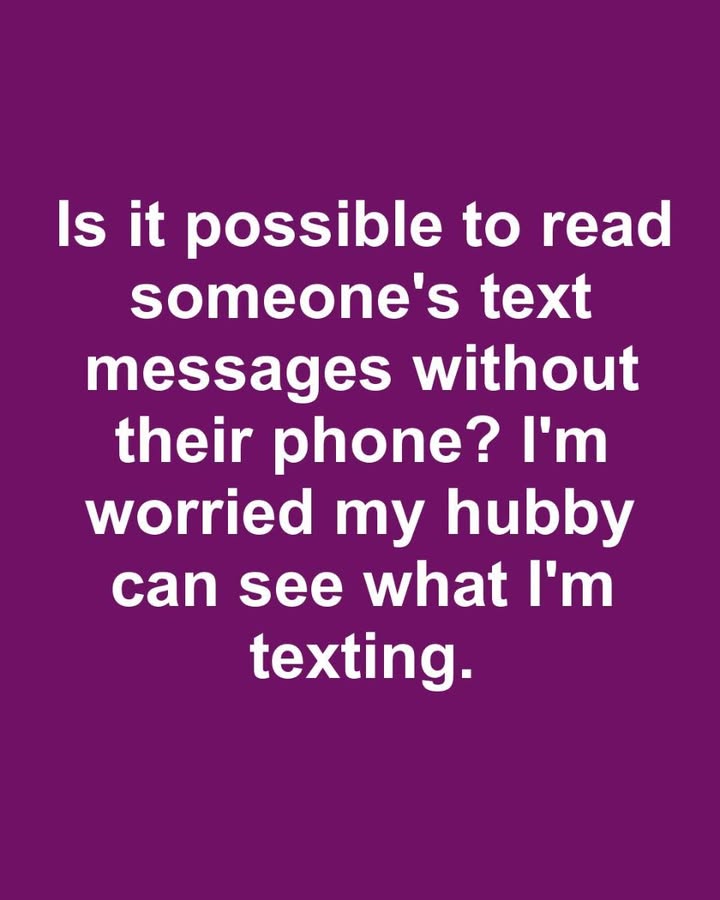In today’s digital era, concerns about privacy have become more pressing than ever, especially with the widespread use of smartphones for communication. Many people wonder whether it’s possible for someone to read their text messages without physically having access to their phone. This question can feel unsettling, even a bit creepy, but it’s important to understand the risks involved and what steps you can take to protect your privacy.

When you send a text message, it doesn’t just go directly from your phone to your friend’s; it passes through multiple networks and servers along the way. Each of these points is a potential vulnerability where messages could be intercepted or accessed by unauthorized parties. Knowing how text messages travel and where they are stored can help you better understand the risks to your privacy. There are several common methods people might use to access someone else’s text messages without holding their phone. One popular method involves spyware apps, which can be secretly installed on a target device. These apps allow someone to remotely monitor messages, calls, and even location without the phone owner’s knowledge. Another way hackers or bad actors gain access is by exploiting weaknesses in cellular networks, though this often requires advanced skills or resources.
Additionally, many people back up their text messages to cloud services, such as iCloud or Google Drive. If someone gains unauthorized access to these cloud accounts, they can retrieve your text conversations without needing your phone at all. Each of these methods carries varying degrees of complexity and risk, but all pose significant threats to your privacy. It’s essential to understand that accessing someone’s text messages without permission is not only a serious invasion of privacy but often illegal.
Laws around digital privacy differ depending on your country or state, but generally, unauthorized access to electronic communications is prohibited and punishable by law. Ethically, respecting the privacy of others is crucial for maintaining trust and integrity in any relationship, whether personal or professional. If you’re worried your text messages might be compromised, there are several warning signs to watch for. For example, your phone’s battery might drain faster than usual, or the device could heat up even when not in heavy use. You might also receive strange or suspicious text messages, or notice that someone appears to know personal details you’ve only shared via text. While none of these symptoms guarantee you’re being monitored, they can be important red flags worth investigating.
Protecting your text messages starts with securing your phone itself. Use a strong passcode or biometric lock like fingerprint or facial recognition to make unauthorized access more difficult. Be cautious about the apps you download and pay close attention to the permissions they request. Regularly update your phone’s operating system to patch any security vulnerabilities that could be exploited. Avoid sending sensitive information over public Wi-Fi networks unless you’re using a trusted VPN, which encrypts your internet connection to protect your data. For even greater privacy, consider switching to encrypted messaging apps such as Signal or WhatsApp. These platforms use end-to-end encryption, meaning that only you and the intended recipient can read the messages, even if someone intercepts the data in transit. Additionally, regularly reviewing and managing the permissions granted to your installed apps can help minimize your exposure to spyware or unauthorized data access. If you suspect your text messages are already being monitored, act quickly to secure your accounts. Change all your passwords immediately and enable two-factor authentication wherever possible to add an extra layer of security. Performing a factory reset on your phone can remove hidden spyware, but make sure to back up your important data beforehand. If you believe your privacy has been seriously violated, consulting a legal professional can help you understand your rights and explore your options. In conclusion, while it is technically possible for someone to read your text messages without having your phone, there are numerous steps you can take to protect yourself. By understanding the risks, practicing good security habits, and using privacy-focused technologies, you can safeguard your personal communications. Remember, respecting privacy is a cornerstone of any healthy relationship, and fostering open communication with those you trust is always the best way to address concerns about security and trust.





